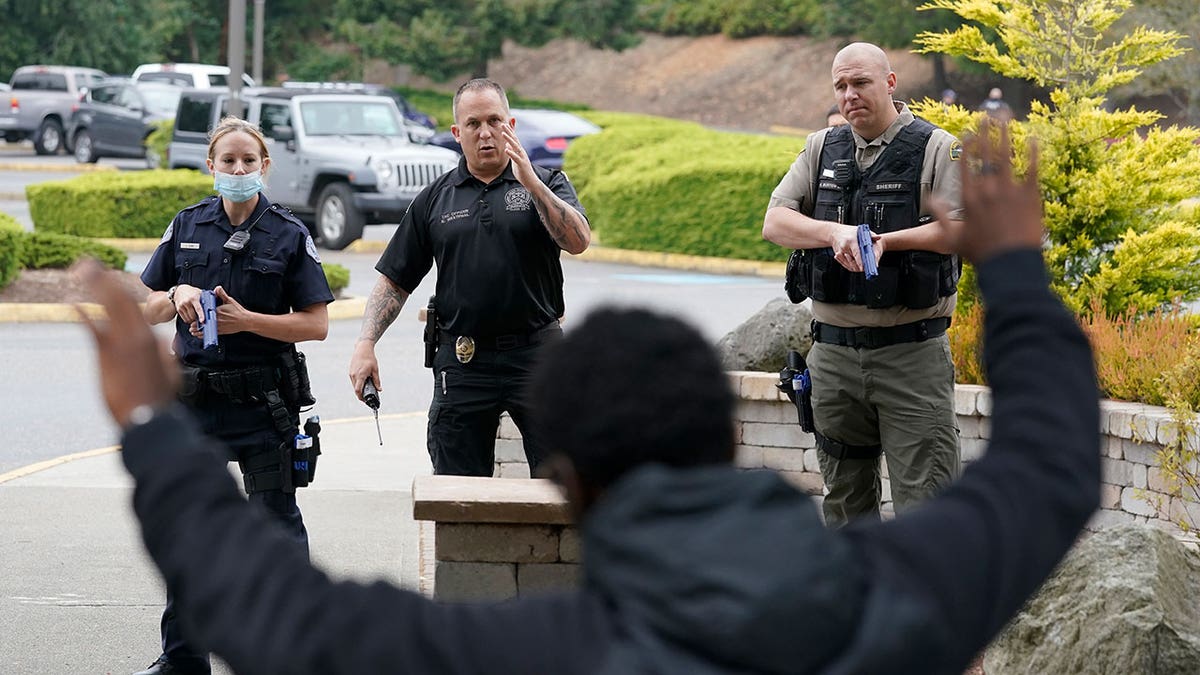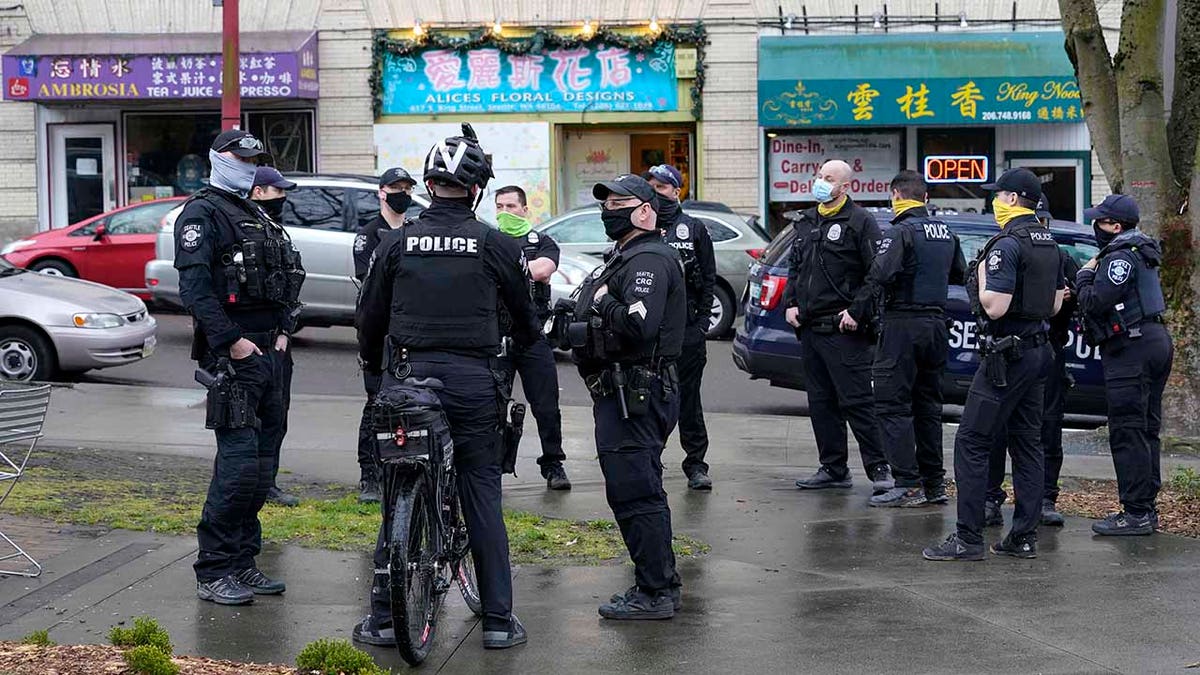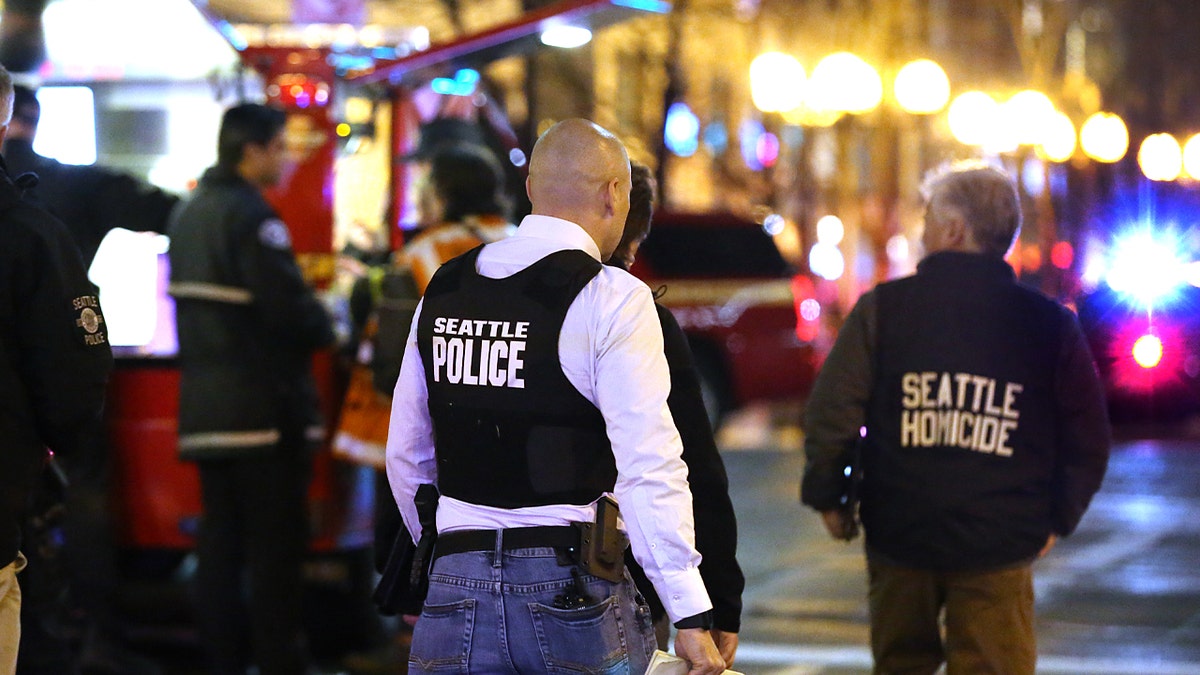Washington state implements sweeping police reforms to address racial inequity
President of the Seattle Police Officer Guild Mike Solan discusses the reform which includes limited use of force, no tear gas, no car chases, among other ‘accountability’ regulations
Mental health officials in Washington state are worried about a mental health crisis that has grown steadily during the COVID-19 pandemic and is now getting even worse because of a new state law aimed at reducing use of force by law enforcement. Since HB 1310 went into effect July 25, the backlog of cases has more than doubled in King County as many agencies no longer send officers on mental health calls unless a crime has been committed.
Snohomish County Sheriff Adam Fortney says the police reform law makes it too risky for his deputies even when a judge has signed an order for a person’s involuntary commitment. "There comes a point in time when a deputy sheriff has to make a split-second decision," Fortney says, "We can no longer use force unless there is probable cause for someone’s arrest. Nobody is under arrest with a person in a mental health crisis."

Lacey Police Officer Ken Westphal, center, an instructor at the Washington state Criminal Justice Training Commission, works with cadets during an exercise July 14, 2021, in Burien, Washington. (AP Photo/Ted S. Warren)
Frank Crouch, the involuntary commitment coordinator for King County, says designated crisis responders typically have about 60 cases pending. But now the backlog is hitting nearly 140 cases. That means fewer people are being evaluated by behavioral specialists when family members call with concerns. It also has led to a drop in involuntary commitments, reserved for those experiencing severe mental crisis who might pose a danger to themselves or others.
WA SERGEANT ON WHY NEW POLICE REFORM LAW CAUSED DEPUTIES TO CALL OFF K9 SEARCH FOR MURDER SUSPECT
HB 1310 was part of sweeping police reform laws passed by the Washington state legislature in 2021 in response to Black Lives Matter protests. The Democratic-controlled government did not define force, but did indicate officers should consider leaving the scene "if there is no threat of imminent harm and no crime has been committed, is being committed, or is about to be committed."
Democratic State Rep Roger Goodman is one of the key architects of the police reform laws. "Nothing the legislature did prevents police from responding to any calls, mental health crises or any other type of call," Goodman says, "And the public expects the police to respond to calls."
But Goodman does admit there is confusion surrounding use of force when it comes to people needing mental health treatment. He vows the legislature will take up clarifying bills in the next session, which starts in January. "There might be a couple marginal adjustments to policy to make sure police can do their jobs, but that we don’t have needless injuries and deaths and use of force," Goodman said. "I think we can thread that needle."

Seattle police officers confer after taking part in a public roll call at Hing Hay Park in the city's Chinatown-International District on March 18, 2021. ((AP Photo/Ted S. Warren, File))
WASHINGTON’S POLICE-REFORM LAW BANS MILITARY-STYLE EQUIPMENT, MISTAKENLY INCLUDING LESS-LETHAL FORCE
Meanwhile, there have been avoidable tragedies and near tragedies. One police department changed its policy on suicidal subjects so officers will no longer be dispatched if the person is "in their residence and doesn’t present a threat to anyone else." Nine hours after a 911 suicide threat was called in by a girlfriend, a man took his own life in his apartment. Police did not send an officer to the initial call for help.
In Snohomish County, deputies did respond to a parent’s call about his son hearing voices and being agitated. When they arrived at the home, the teenager walked away. Sheriff Fortney defends the deputy’s decision to let him walk. "We have to weigh the risk versus reward," said Fortney, "The way they wrote this legislation, the risk now far outweighs the reward for a law enforcement officer to even be involved with a person in a mental health crisis."

Police look over the scene of a shooting at Third Avenue and Pine Street on Jan. 22, 2020, in Seattle, Washington. (Karen Ducey/Getty Images)
That teenager walked through the woods to another house, which he entered through an unlocked front door. Eric Bellabiod was home with his children and stunned to see the now naked teen in his living room. He grabbed a kitchen knife and ordered the young man to get on his knees. Luckily, the teenager complied and no one was hurt.
CLICK HERE TO GET THE FOX NEWS APP
Bellabiod says the use of force law needs to be changed. "What’s the point in calling the police if they can’t act?" asks Bellabiod.
Some police reform activists don’t blame the law, but rather the police. Davitta Briscoe, whose brother was shot and killed by Seattle police, says cops are weaponizing a law they don’t like.
"This does not help, to protest or to say we’re not going to show up at all," said Briscoe, "It doesn’t help repair the relationship with those communities, it doesn’t help build trust."










































